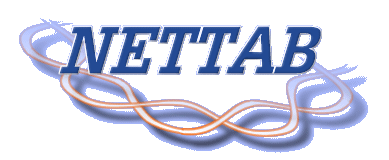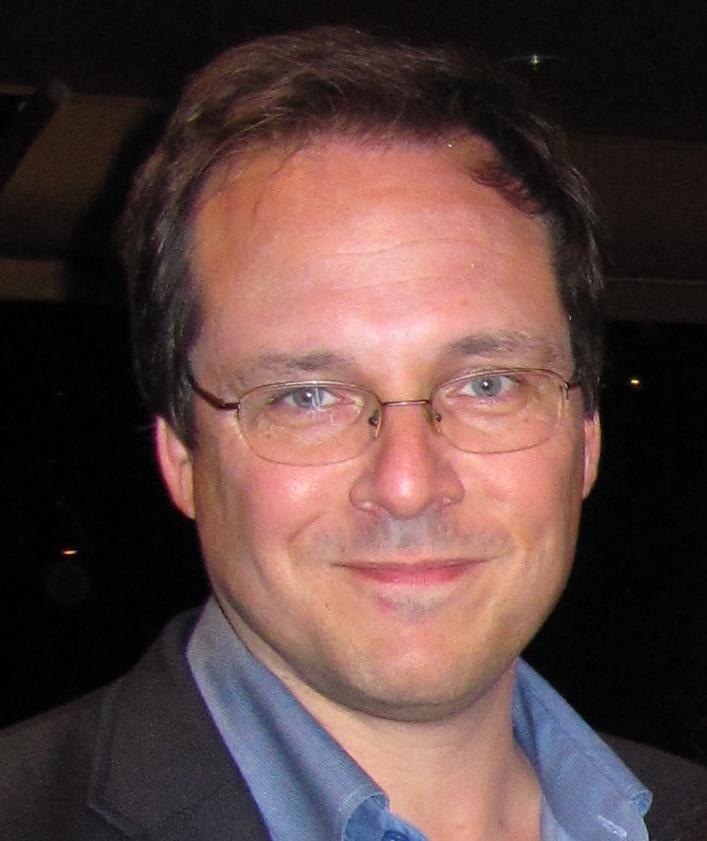

|
NETTAB 2012 workshop focused on
Integrated Bio-Search November 14-16, 2012, Como, Italy NETTAB workshops are held under the patronage of Bioinformatics Italian Society and EMBnet |

|
Invited Speakers

|
Wednesday, November 14, 2012, 14.30 - 15.10 Integration and analysis of multi-type high-throughput data for biomolecular knowledge discovery Erik Bongcam-Rudloff, Department of Animal Breeding and Genetics, Swedish University of Agricultural Sciences, and Department of Immunology, Genetics and Pathology, Uppsala University, Sweden. Erik Bongcam-Rudloff received his doctorate in medical sciences from Uppsala University, Sweden. He is now the Director of the SLU Global Bioinformatics Centre (SGBC) at the Swedish University of Agricultural Sciences. Erik was the chairman of EMBnet (2003-2010), a science-based group of worldwide collaborating bioinformatics nodes. He also coordinated the "Test Cases" work package 4 in the FP6 EMBRACE project (2005-2010). The goal of WP4 was to collect test cases from the scientific community to identify real research problems and to provide solutions for content and tool integration. Bongcam-Rudloff is today Chair of SeqAhead, a Biomedical European COST Action: "Next Generation Sequencing Data Analysis Network" and Coordinator of ALLBIO, a FP7 project: "Broadening the Bioinformatics Infrastructure to unicellular, animal, and plant science". He is also the founder of eBioinformatics.org the creators of eBiotools, eBioKit, eBioX and eBioKit. His main research deals with development of bioinformatics solutions for the Life Sciences community. In this talk he will discuss the new techniques that are now driving the generation of knowledge (especially in biomedicine and molecular life sciences) to new dimensions eg. NGS. He will also discuss the new opportunities in human and non-human research that these techniques create but also the new challenges in the design of ontologies for data and methods, and choosing common interoperability standards. |

|
Thursday, November 15, 2012, 09.00 - 09.40 Semantics based biomedical knowledge search, integration and discovery Barend Mons, Leiden University Medical Center, Leiden, The Netherlands, and Netherlands Bioinformatics Center Barend Mons holds a chair in Biosemantics at the LUMC and is one of the scientific directors of NBIC. In addition he acts as a Life Sciences 'eScience integrator' in the Netherlands eScience centre. Currently, he coordinates the creation of the Data Integration and Stewardship Centre (DISC-ELIXIR) and in that capacity he is also the scientific representative of The Netherlands in the interim board of the ELIXIR ESFRI project. Barend Mons is a molecular biologist by training and received his PhD on genetic differentiation of malaria parasites from Leiden University (1986). He performed over a decade of research on malaria genetics and vaccine development, also serving for 3 years the research department of the European Commission in this field. He did gain further experience in science management at the Research council of The Netherlands (NWO). Barend is the co founder of three spin-off companies in biotechnological and semantic technologies. In 2000, he switched back to academia, focusing on the development of semantic technologies to manage big data and he founded the Biosemantics group. His research is currently focused on nanopublications as a substrate for in silico knowledge discovery. Barend is also one of the founders of the Concept Web Alliance, with "nanopublications" as its first brainchild. Nanopublications are currently implemented in the semantic project of the Innovative Medicines Initiative (IMI) called Open PHACTS. Barend Mons will talk about the role of semantic technologies and related standards applied to biomedical-molecular data integration and biomedical knowledge search and discovery. He will challenge several established views in the field of the Semantic Web for Life Sciences, by also taking into account "data publishing" in a broad sense, including, e.g., biomedical communication, intellectual networking, and nanopublications, with an emphasis on the barriers to brake down in order to allow effective data exposure, sharing, searching, and integration, and to "in silico" discovery of new biomedical knowledge in the Big Data era. This talk will introduce the need for a semantics based eScience approach for âin silicoâ knowledge discovery. It will also show how such approach can indeed already support search, integration, and discovery. |

|
Friday, November 16, 2012, 09.00 - 09.40 Clinical and genomic data integration in support of biomedical research and clinical practice Eric Neumann, PanGenX, and Clinical Semantics Technologies, USA Eric Neumann is a graduate from MIT and holds a PhD in neurobiology, developmental genetics, and pharmacology from Case Western Reserve University. He is a recognized expert in semantic information, and has worked on many information initiatives for the pharmaceutical and life sciences, including the W3C Semantic Web Healthcare and Life Science Interest Group (HCLSIG). Eric Neumann was the Global Head of Knowledge Management for Scientific and Medical Affairs within Sanofi-Aventis and the VP of Informatics at BG Medicine. He founded Genstruct (now Sleventa) and has also worked at Bolt, Beranek, and Newman (now BBN Technologies - Raytheon) on several advanced scientific computation projects over the span of several years. He is Founder and CTO of PanGenX, a personalized medicine company, whose mission is to optimize therapeutic care by facilitating the discovery and application of medical knowledge towards patient segmentation. Starting from the current definition of pharmacogeomics, in his talk Eric Neumann will show how it drives the personalized medicine vision, and will discuss what new forms of clinical and genomic information will be required for making clinical decision in personalized medicine. He will illustrate some available public data sources, showing what they still lack and the value of deep focus curation. He will contrast data vs. "Actionable Knowledge" and discuss how leveraging semantically linked data to help progress personalized medicine. He will also address large-scale analytics and argue about who will benefit from linked knowledge. |
Call for Papers
Late posters and demo
Overview -
Rationale
Topics -
Deadlines
Type of contributions
Instructions
Scientific Programme
Programme
Speakers -
Tutorials
Oral Communications
Posters -
Presentations
Videos
Registration
Overview
Subscribe
Registration cost
Registration form
Useful Info
Contacts -
Location
How to find us
Deadlines -
Hotels
External links
Organization
Chairs
Scientific Committee
Organizing Committee
Institutes & Societies
Sponsors
Websites


